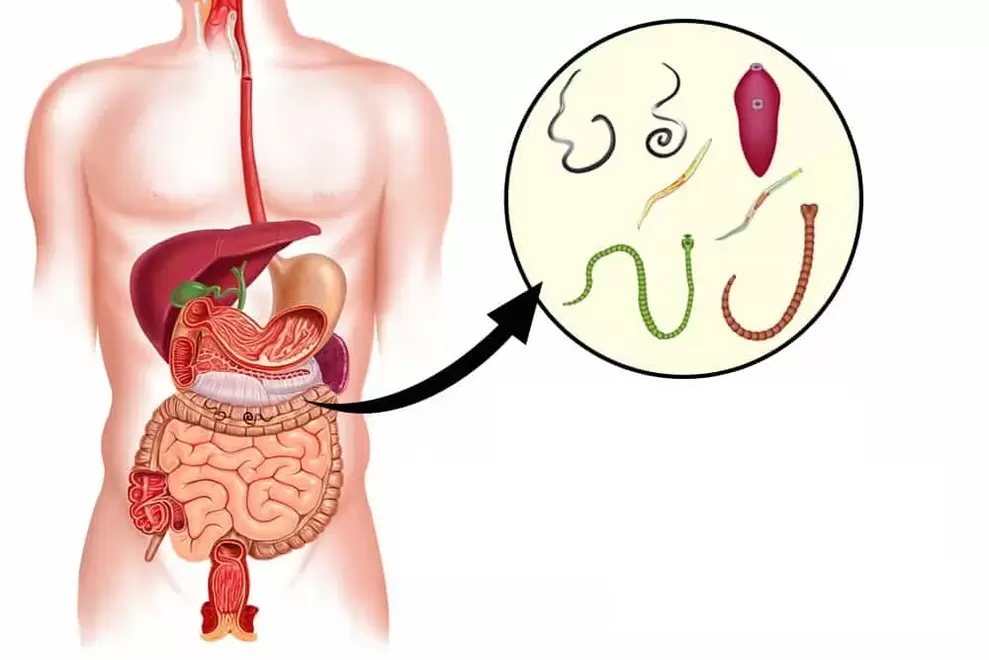Worms are parasitic worms in the human body or in the body of animals. They have a negative effect on the entire body, or on a specific organ, having a devastating effect on health.
Reason
The disease manifests itself in different ways. This is influenced by which species the worms belong to, where they are located in the body, and how many they are. Trichinosis is often characterized by weight loss, weakness, dizziness, and excessive irritability. If the worms are in the intestines, it is accompanied by constipation, diarrhea, a feeling of nausea and possibly vomiting.
When parasitic in the liver - a skin tone and edema; if in the lungs, the appearance of cough and runny nose. With any disease, activity and performance decrease. As for children, there can be disruptions in both mental and physical development, stunting, puberty and memory problems. This disease is caused when helminth eggs enter the human body. We can get them through dirty fruits and vegetables, cooked meat and fish, and most commonly, unwashed hands.

Symptom
Infection with worms to humans, depending on the type, can occur when eating undercooked meat contaminated with eggs and larvae, or when eggs and larvae enter the human body, their development occurs. in the land. Here they develop into adults.
The number of worms in the body of a person with late-stage disease can be very large. Adult worms and their eggs can be excreted from the human body along with feces, which is the main symptom to identify the cause of the disease. In addition, there are more complicated diagnostic methods based on blood tests, sputum, etc. performed at the hospital. When infected with worms, you can:
- general unrest and weakness;
- rapid fatigue, increased or decreased appetite;
- nausea, vomiting, severe stomach pain, rapid weight loss;
- diarrhea with the excretion of worms in the stool;
- itching sensation in the anal area;
- sleep disorders.
Diagnose
To establish a treatment for worms, the pediatrician prescribes:
- meta-analysis of feces;
- general blood analysis;
- X-ray examination of the intestines;
- shave the skin around the anus.
The following types of worms are most common in humans: pinworms, roundworms related to roundworms, and tapeworms (tapeworms) related to tapeworms (tapeworms). The main sources of infection are dirty hands, unwashed fruits and vegetables, untested food, contaminated water, and flies.
The treatment
Necessary worm treatment includes:
- antiparasitic drugs;
- adsorbent;
- enzymes;
- immunomodulatory drugs;
- hepatoprotective drugs.
If not promptly determined how to deworm, there is a risk of complications:
- jaundice;
- bowel obstruction;
- pancreatitis;
- purulent skin lesions;
- anemia.
Preventive
To prevent infection and spread of roundworms, you should follow the rules of personal hygiene, wash your hands, vegetables and fruits thoroughly, and keep the toilet clean. In order not to face the problem of how to deworm in the future, you should:
- compliance with the rules of personal hygiene;
- thoroughly wash the product before use;
- carry out the necessary heat treatment for meat, fish and seafood before eating;
- supervise children during play (so as not to put objects on the floor in their mouths).






































